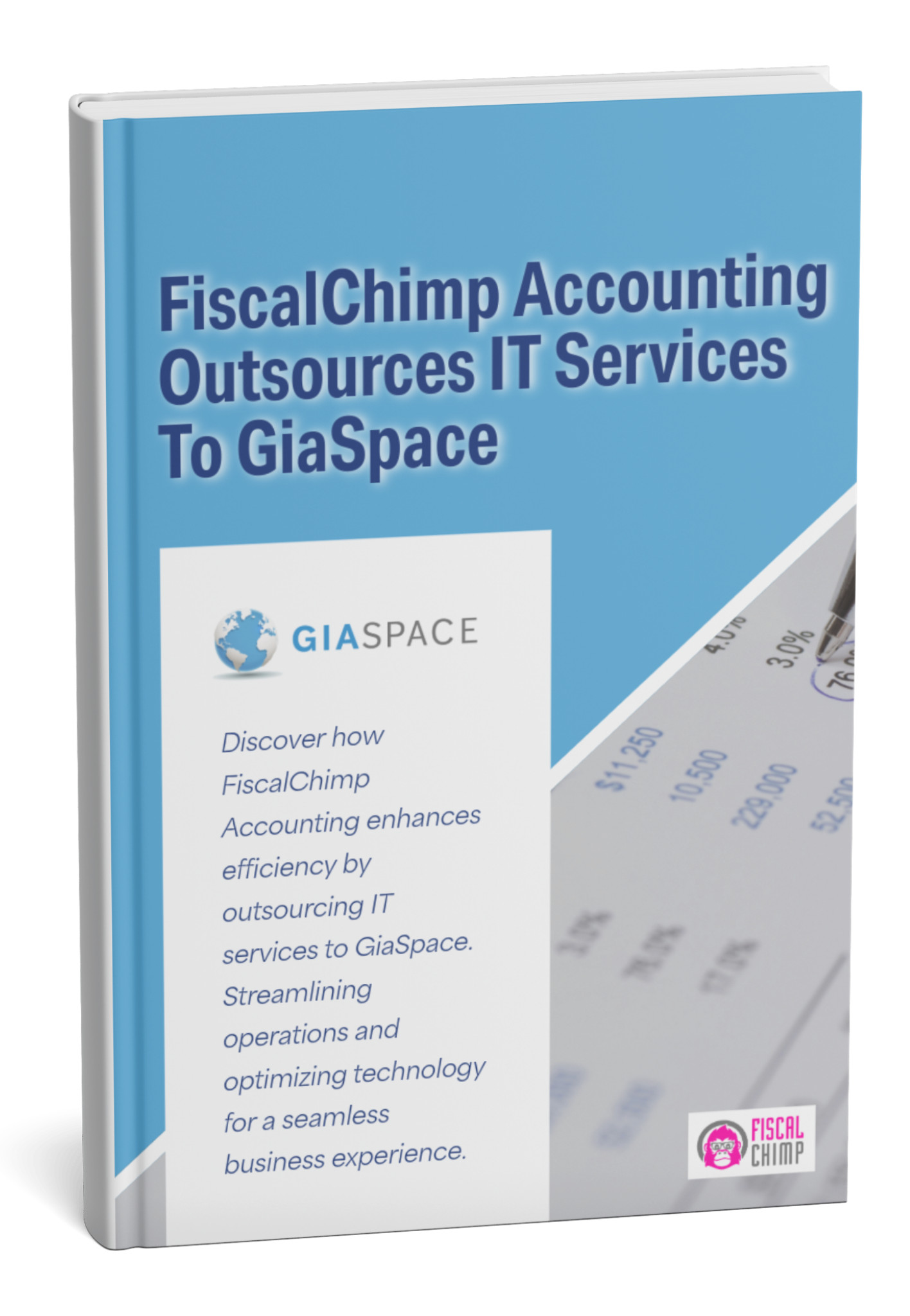Managed Services for CFOs: Why Finance Leaders Are Embracing This Strategic Solution
Finance leaders across industries are rediscovering Managed Services for CFOs as a vital tool in strategic business planning. Managed Services for CFOs represent more than outsourced IT—they’re a financial strategy that drives efficiency, predictability, and competitive advantage. For CFOs facing escalating IT costs and complexity, understanding Managed Services for CFOs has become essential.
Why Managed Services?
The concept of Managed Services for CFOs is far from new, but the renewed financial leadership interest stems from proven results. Managed Services for CFOs deliver measurable operational efficiency, predictable cost structures, and strategic advantages that directly impact the bottom line. Today’s finance leaders recognize that Managed Services for CFOs aren’t just an IT solution—they’re a financial optimization strategy.

How Do Managed Services for CFOs Drive Measurable Operational Efficiency?
For CFOs, efficiency isn’t just a buzzword; it’s a measurable outcome that directly impacts profitability. Managed IT services offer a powerful lever for optimizing operations by transforming reactive IT spending into predictable, proactive investment. Imagine an environment where IT outages are minimized, critical systems are always updated, and your team isn’t bogged down by tech support tickets. This is the reality a robust managed services partnership delivers. By offloading routine maintenance, monitoring, and helpdesk functions to a dedicated team of experts, your internal staff can focus on high-value tasks. This streamlined approach reduces wasted time, improves productivity across departments, and ensures that your technology actively supports, rather than hinders, your business processes. Ultimately, it means more consistent uptime, smoother workflows, and a tangible boost to your organization’s overall operational tempo – directly impacting your financial performance.
What are the Tangible Cost Savings of Managed Services for CFOs?
The allure of cost savings is often the initial draw for CFOs considering managed services, and for good reason. The traditional model of in-house IT, with its unpredictable expenses for hardware, software licenses, staffing, training, and emergency repairs, can be a budgetary black hole. Managed Services for CFOs offer a predictable, fixed monthly fee that eliminates budgetary surprises. This allows CFOs to accurately budget and forecast IT expenditures, eliminating unexpected capital outlays. Beyond the obvious, the savings extend to:
- Reduced Labor Costs: No need for a large in-house IT department, including salaries, benefits, and ongoing training.
- Minimized Downtime Costs: Proactive monitoring and rapid issue resolution prevent costly outages that halt operations and impact revenue.
- Optimized Infrastructure: Experts ensure you have the right technology without overspending on unnecessary equipment or under-utilizing existing assets.
- Leveraged Buying Power: MSPs often have access to better rates on software, hardware, and cloud services due to their volume.
- Compliance Cost Mitigation: Ensuring regulatory adherence can be complex and expensive; an MSP helps navigate these waters, reducing risk and potential penalties.
These combined factors paint a clear picture: managed services aren’t just an expense; they’re a strategic investment that generates significant, measurable returns for the CFO’s budget.
How Do Managed Services Enable a Strategic Focus for the Modern CFO?
The demands on today’s CFO extend far beyond traditional financial reporting. They are increasingly expected to be strategic partners in business growth, digital transformation, and competitive differentiation. However, when an in-house IT team is perpetually bogged down with day-to-day maintenance, troubleshooting, and reacting to crises, the CFO’s vision for leveraging technology strategically becomes obscured. This is where Managed Services for CFOs become truly transformative. By implementing Managed Services for CFOs, finance leaders free up internal resources and mental bandwidth to focus on high-level initiatives.
By entrusting routine IT operations to a dedicated external expert, CFOs free up their internal resources – and crucially, their own mental bandwidth – to focus on high-level initiatives. This includes exploring new revenue streams, analyzing market trends, optimizing supply chains, and driving innovation. The shift allows the CFO to move from an operational overseer of IT problems to a strategic architect leveraging technology for genuine business advantage.
What IT Challenges Do CFOs Face Without Managed Services?
For CFOs, unmanaged IT can quickly become a significant financial and operational drain. Without a proactive managed services partner, businesses frequently encounter a cascade of avoidable problems:
- Unpredictable Costs: Break-fix models lead to erratic, often large, expenditures for emergency repairs, unexpected hardware failures, and licensing gaps. This wreaks havoc on budgeting and forecasting.
- Increased Downtime & Productivity Loss: When IT issues inevitably arise, without 24/7 monitoring and rapid response, operations grind to a halt. Every minute of downtime translates directly into lost revenue and decreased employee productivity.
- Escalating Cybersecurity Risks: Small and medium businesses are prime targets. Without dedicated, up-to-date cybersecurity expertise, compliance becomes a nightmare, and the financial and reputational fallout from a breach can be catastrophic.
- Lack of Strategic IT Planning: Internal teams, often stretched thin, rarely have the capacity to develop and implement long-term IT strategies aligned with business goals. This leaves the company reactive rather than proactive.
- Talent Acquisition & Retention Headaches: Finding and keeping skilled IT professionals is expensive and challenging. Without a clear career path or specialized focus, in-house IT staff can experience burnout and high turnover.
- Technological Obsolescence: Staying current with the latest software, hardware, and cloud solutions is a full-time job. Without expert guidance, businesses risk falling behind, impacting competitiveness and efficiency.
These challenges aren’t just technical; they are directly impactful to the financial health and strategic direction of the company, placing immense pressure on the CFO.
Beyond Cost: What Strategic Benefits Do Managed Services for CFOs Deliver?
When evaluating Managed Services for CFOs, cost predictability emerges as the primary driver. Traditional IT models create budgetary uncertainty, while Managed Services for CFOs transform unpredictable expenses into fixed, forecastable investments. Here’s what makes Managed Services for CFOs financially compelling:
- Enhanced Cybersecurity Posture: Access to enterprise-grade security tools, expert threat intelligence, and continuous monitoring that most SMBs could never afford or manage in-house. This significantly reduces financial risk from breaches.
- Scalability and Flexibility: Seamlessly adjust IT resources up or down to meet changing business needs without major capital investments. This agility is crucial for managing growth, seasonal demands, or market shifts.
- Access to Specialized Expertise: Gain an entire team of certified IT professionals with diverse specializations (cloud, networking, security, data analytics) without the overhead of hiring them individually.
- Improved Compliance & Risk Management: Navigate complex regulatory landscapes (HIPAA, PCI DSS, etc.) with expert guidance, minimizing legal and financial penalties.
- Business Continuity & Disaster Recovery: Proactive planning and implementation of robust backup and recovery solutions ensure your business can weather any storm, protecting critical data and operations.
- Focus on Innovation: By offloading operational IT burdens, internal teams can dedicate their energy to innovation, developing new products, improving customer experiences, and driving competitive advantage.
These non-financial benefits contribute significantly to the overall health and future-readiness of the organization, making managed services a truly holistic solution for the strategic CFO.
How Does GiaSpace’s Managed Services Approach Align with CFO Priorities?
At GiaSpace, we understand that CFOs operate with a unique set of priorities: predictable costs, optimized efficiency, and strategic growth. Our managed services are meticulously designed to directly address these core concerns for businesses across Florida, from Gainesville to Miami.
- Predictable Budgeting: We offer clear, transparent monthly pricing, eliminating the unpredictable IT expenditures that can derail financial planning. You know exactly what you’re investing, allowing for precise forecasting.
- Maximized ROI: Our proactive monitoring and maintenance minimize downtime, directly translating to enhanced productivity and protection of your revenue streams. We ensure your IT investments deliver tangible returns.
- Robust Security, Mitigated Risk: Cybersecurity isn’t an afterthought; it’s foundational. We deploy corporate-level security solutions that safeguard your assets and data, drastically reducing the financial and reputational risks associated with breaches.
- Strategic Partnership: We go beyond mere tech support. Our team acts as an extension of your business, offering expert guidance on technology adoption (like cloud migration or VoIP solutions) that aligns with your long-term financial and operational goals.
- Scalability for Growth: As your business evolves, our services scale with you, providing the IT infrastructure you need without prohibitive capital outlays, supporting your growth without friction.
Partnering with GiaSpace means gaining a reliable IT ecosystem that empowers your financial strategy, turning IT from a cost center into a powerful engine for business success.
What Questions Should CFOs Ask When Considering Managed Service Providers?
Choosing the right managed service provider is a critical decision that impacts your entire organization’s financial health and operational stability. To ensure you select a partner that truly aligns with your strategic objectives, CFOs should ask insightful, probing questions. Here are key areas to explore:
- Cost Structure & Transparency: “What exactly is included in your monthly fee? Are there any hidden costs or tiered service levels I should be aware of? How do you handle hardware replacement or major software upgrades?”
- Service Level Agreements (SLAs) & Responsiveness: “What are your guaranteed response and resolution times for critical issues? How do you measure and report on these metrics?”
- Cybersecurity Expertise & Compliance: “Describe your cybersecurity framework. How do you protect our data? What experience do you have with compliance relevant to our industry (e.g., HIPAA, PCI DSS)?”
- Strategic Alignment & Roadmap: “Beyond daily support, how will you help us leverage technology to achieve our business goals? Do you provide IT strategy consulting and a technology roadmap?”
- Scalability & Flexibility: “How easily can your services scale up or down to accommodate our business growth or changing needs?”
- Reporting & Communication: “What kind of regular performance reports can we expect? How often do we meet for strategic reviews? What’s your communication protocol during a crisis?”
- Client References & Track Record: “Can you provide references from CFOs or financial leaders in similar industries or company sizes? What is your client retention rate?”
- Disaster Recovery & Business Continuity: “What are your strategies for ensuring business continuity in the event of a major outage or disaster? How quickly can we be back online?”
Asking these questions will help you evaluate not just a vendor, but a true strategic partner dedicated to your financial success.
Case Study: Real-World Impact of Managed Services on a CFO’s Bottom Line
Consider “Apex Manufacturing,” a mid-sized Florida-based company facing escalating IT costs and frequent system outages. Their CFO, Sarah Chen, was grappling with unpredictable expenses from break-fix support and the lost productivity caused by recurring IT issues. Internal IT staff were overwhelmed, leaving little time for strategic projects.
The Challenge:
- Rising, unpredictable IT expenditure.
- Frequent downtime impacting manufacturing schedules.
- Lack of proactive cybersecurity measures.
- Internal IT team struggling to keep up.
The GiaSpace Solution: GiaSpace implemented a comprehensive managed services plan for Apex Manufacturing, including 24/7 monitoring, proactive maintenance, advanced cybersecurity protocols, and strategic cloud migration planning.
The CFO’s Impact: Within the first year of partnering with GiaSpace, Apex Manufacturing experienced:
- 28% Reduction in Annual IT Spending: From unpredictable capital outlays to a predictable, fixed monthly fee, Sarah gained complete budgetary control.
- 99.9% Uptime Achieved: Proactive monitoring and rapid response virtually eliminated costly downtime, directly improving manufacturing efficiency and delivery times.
- Strengthened Security Posture: A full security audit and ongoing threat management significantly reduced risk, providing peace of mind to Sarah and the board.
- Internal Team Realigned: Apex’s internal IT staff were freed from reactive tasks and could focus on specialized, in-house applications and innovation.
As Sarah Chen noted, “GiaSpace transformed our IT from a headache into a strategic asset. The cost savings were immediate and impactful, but the real value came from the stability and strategic guidance that allowed us to focus on what we do best – manufacturing quality products.”
The Future: How Managed Services Prepare CFOs for Digital Transformation?
Digital transformation isn’t an option; it’s a necessity for businesses striving to remain competitive. For CFOs, this means understanding how technology investments will yield future returns, manage risk, and foster innovation. Managed services are not just about maintaining current IT; they are about building a resilient, adaptable, and forward-looking IT foundation that enables continuous transformation.
A strategic MSP acts as a compass, guiding CFOs through:
- Cloud Adoption Strategies: Seamlessly migrating to cloud-based solutions for scalability, flexibility, and cost optimization, directly impacting the balance sheet.
- AI and Automation Integration: Identifying opportunities to leverage emerging technologies to streamline financial processes, enhance data analytics, and improve operational efficiency.
- Data-Driven Decision Making: Ensuring the underlying IT infrastructure can support robust data collection, analysis, and security, providing CFOs with the insights needed for strategic choices.
- Cybersecurity Resilience: Building a security posture that can evolve with new threats, protecting valuable digital assets during periods of rapid technological change.
By partnering with a managed services provider, CFOs secure not just a robust IT environment for today, but a strategic ally equipped to navigate the complexities of tomorrow’s digital landscape, ensuring sustained growth and competitive advantage.
Published: Jun 20, 2025







